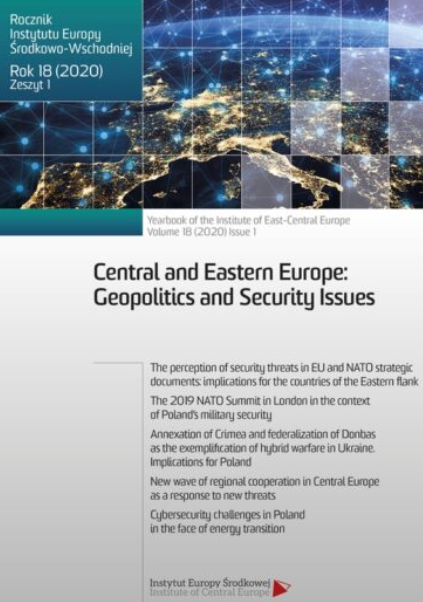Polish energy strategy – in the quest for economy. Reflections on the Polish energy policy in the perspective of endogenous growth theory and global trends within the context of Visegrad cooperation
Polish energy strategy – in the quest for economy. Reflections on the Polish energy policy in the perspective of endogenous growth theory and global trends within the context of Visegrad cooperation
Author(s): Justyna BokajłoSubject(s): National Economy, Energy and Environmental Studies, Economic policy, Environmental and Energy policy, International relations/trade, Economic development
Published by: Instytut Europy Środkowej
Keywords: Energy; endogenous economic growth; sustainability; economic policy; Poland; Visegrad cooperation;
Summary/Abstract: Strategies are usually long-term plans. However, many problems appear if they are considered essential issues of social life and economic security, especially considering the need to make choices concerning conditions of limited resources. Another issue is the dilemma of achieving individual goals in the conditions of global interdependencies. One of the key requirements of nation-states is to ensure energy security; therefore, governments are strongly focused on establishing a stable, enduring, and useful energy strategy. Therefore, the point of importance is factors that will be able to ensure energy efficiency, economic stability, security, and in parallel, sustainable development both on the national and global levels. Drawing from the above, this study investigates the reasons for the indispensability to carry out an energy market systemic reform in Poland with consideration of economic argumentation. The theories of economic growth, especially of endogenous kind, is taken into consideration. It is also argued that to achieve sustainable economic growth and social development in the long run, it would be reasonable to simultaneously concentrate on human capital and technologies. More advantages will be gained through intergovernmental cooperation, within regional groups such as the Visegrad Group and at the supranational EU level. This conviction is motivated by the principles of public choice theory.
Journal: Rocznik Instytutu Europy Środkowo-Wschodniej
- Issue Year: 18/2020
- Issue No: 1
- Page Range: 117-139
- Page Count: 23
- Language: English

